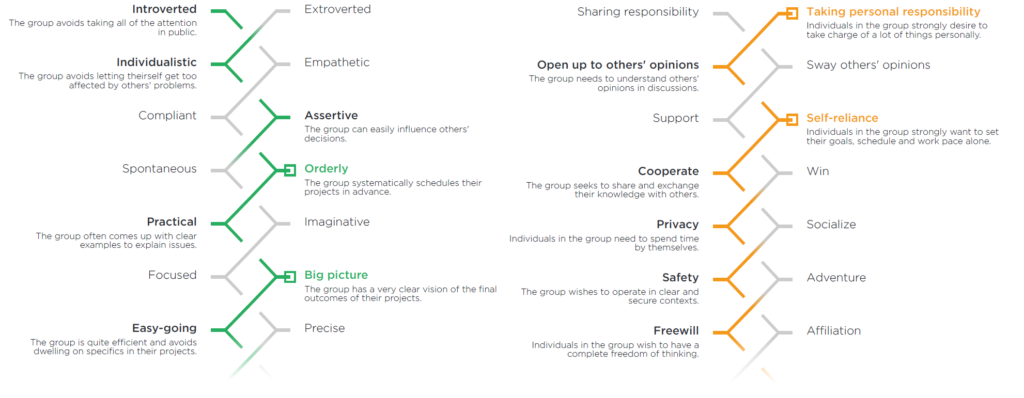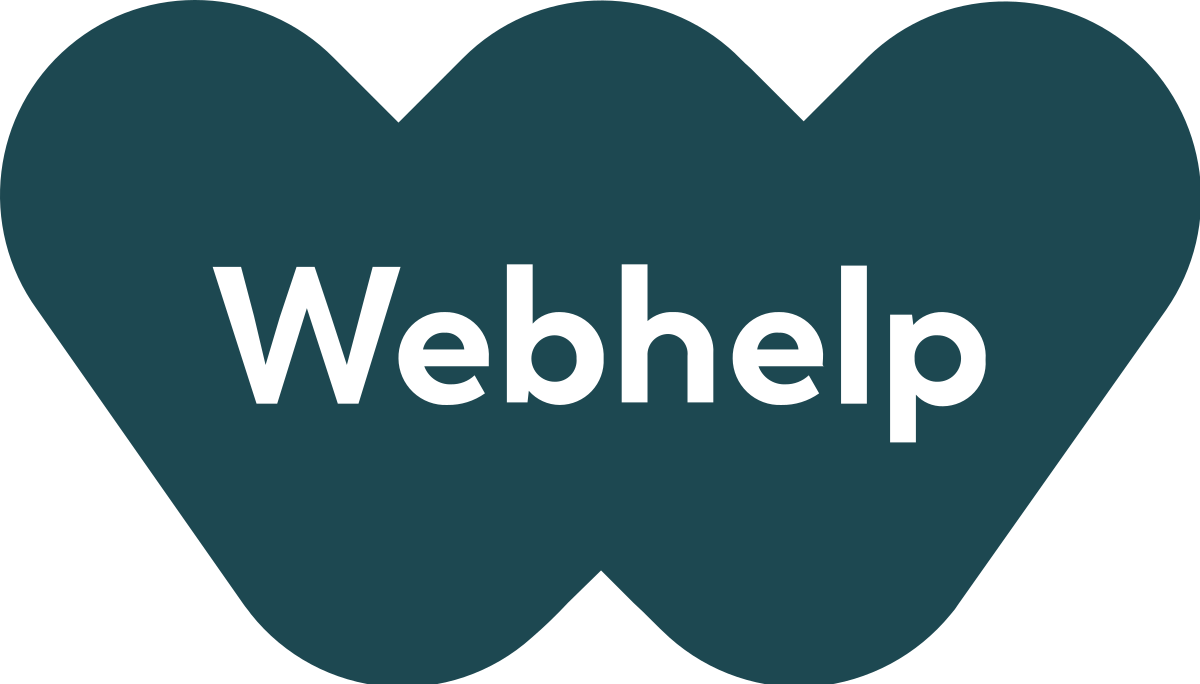Goal Setting Guided by Soft Skills
While there’s never a bad time to set new goals, there sure is something about a fresh new year that boosts motivation! As you take a look at your plans for personal development this year, get a fresh perspective on where you could be going by using your soft skills to guide your goal setting.
Reflect on Where You Currently Stand
When it comes to tackling big goals, it’s important to start with small steps. In order to see how far you have to go, take a look at where you are right now. The skills you possess and the resources you have available can impact the way you set and achieve your goals. Take inventory of what you already have at your fingertips, and keep that into consideration as you determine where you want to go.
Setting Goals with Soft Skills
Next, it’s time to make a plan for what you want to achieve and how you’ll get there. While there are a lot of the goals that might seem like they only require hard skills - such as a certain level of education or required certifications - the truth is that soft skills are the power behind these achievements! By simply being aware of the soft skill strengths you possess, you will be able to better understand how you approach situations and what motivates you, as well as be better equipped to set and reach attainable goals.
Let’s say you want to grow your professional network in the year ahead. Before committing to this goal, it’s important to ask yourself questions about your personality. Are you an introverted person or do you tend to seek a spotlight? If you take the time for self reflection, you can determine what a realistic goal looks like for you and better plan the necessary steps to reach it. For example, if you take a while to warm up around new people, you might make a goal to connect with a certain number of people on LinkedIn each month. However, a more extroverted person might look up conferences or large virtual events that provide an opportunity to dive right into new relationships. Although the end goal is the same, to grow your network, the path to get there might look different from person to person.
Develop a Clear Path Forward
Now that you have a better understanding of where you currently are, take a look at where you want to be and determine a clear path to get there. If you can’t see a plausible way to reach your goal, reevaluate how to set realistic goals in the right direction.
After all, the soft skills you have today can empower your growth tomorrow! Understanding the way you structure your day or what motivates you can help you determine the best way to create a path to your goal. Other goals can be reached by developing soft skills you may not currently use as much. For example, if you have a professional goal to move into a management position at work, you might want to develop some of the most in-demand skills that businesses are looking for when hiring for leadership positions. According to The Balance Careers, these areas of focus can include communication skills, empathy and flexibility.
Whether the path forward utilizes existing skills or is developed with soft skills growth in mind, it’s important to write everything down. Committing to goals mentally is a great first step, but putting them to paper or a digital space helps to make them real. Include checkpoints at regular intervals throughout your journey in order to track progress and adjust goals along the way.
What Are You Waiting For? Get Started!
There’s no time like the present when it comes to self-improvement. Take some time to reflect on the strengths you currently possess, then determine how you can use those skills to get to where you want to be.
Ready to discover your soft skill strengths and improve your goal setting this year? Take our free MyPrint assessment today by clicking here!
The Soft Skills DNA of Remote Workers
Remote workers have taken on growing significance in the U.S. workforce. In fact, a recent poll of employees showed that 39 percent would now consider quitting if their bosses did not provide some sort of work from home option. Clearly, employers need to take remote work seriously as they ponder how to build teams with the future of work in mind.
While remote work had been growing in popularity prior to the COVID-19 pandemic, the global health crisis turned work from home from a nice-to-have option into a necessity for a great deal of companies. The experience highlighted the advantages of a more flexible work environment for many employees and employers alike. However, as with any workplace, some workers adapted more easily to remote working conditions than others. The reason for these differences can be found in the science behind personality traits and workplace motivations.
Remote Work DNA
In an effort to help employers better understand this emerging workforce, psychologists at Talentoday used our Tailored Group DNA tool to create a soft skills model dedicated to remote workers. Users who access this tool within the Talentoday Manager platform will find the predominant personality traits and motivational needs that are necessary for a good adaptation to remote working conditions. Employers can then use this information to compare these benchmarks with the profiles of existing employees and potential job candidates.

Here’s a preview of our findings:
Predominant Personality Traits
- Orderly: When working from home, it pays to stay organized! This group prefers to schedule projects in advance.
- Big Picture: Even if the home office might be small, the goals for this group are big. Remote workers are more likely to have a clear vision of the final goals of their projects.
- Determined: This group sticks it out when the going gets tough, striving to overcome even the most difficult challenges.
- Positive: A shifting work environment is helped by the right mindset. These individuals have strong confidence in the future.
Predominant Motivations
- Taking Personal Responsibility: Remote workers know that they are the only ones around to hold them responsible for their actions. They tend to keep themselves accountable for their work and decisions.
- Self-Reliance: When you work from home, it pays to be able to set your own goals, schedule and pace of work.
- Personal Achievement: Goal setting is essential when it comes to the flexible work environment. Our research shows this group seeking to achieve highly difficult objectives.
- Intrinsic Enjoyment: When you work alone most of the time, you tend to find motivation from internal forces. Rather than being showered with external accolades, these workers prefer to achieve things for their personal satisfaction.
If recent history is any indication, remote work and other flexible forms of employment are here to stay. Employers looking to build the best teams possible need to start considering more than technical requirements for positions. By applying soft skills research to the hiring and team management process, employers can better predict employee success in a given workplace setting.
Are you interested in learning more about Group DNA from Talentoday? Click here to sign up for your free trial of Talentoday Manager, which includes our Group DNA tailored to the needs of the remote workforce.
Webhelp Case Study: Successful Job Placement with Soft Skills
The Challenge: Lack of Insight into Top Performers’ Skill Sets
With thousands of new hires annually, streamlining the recruiting process had become a critical challenge for Webhelp. In need of a better process to identify top performers for key positions, Webhelp turned to Talentoday to help optimize the job placement process as soon as candidates passed the generic corporate recruitment phase.
The Solution: Optimize Job Placement with Thorough Assessment
Leveraging MyPrint, Talentoday conducted a massive soft-skills assessment campaign with employees to collect soft skills data. Coupling that with company performance data, Talentoday created a replicable roadmap using traditional descriptional statistics methods and complex machine-learning techniques to identify key soft skills for critical roles.
The Results: More Successful Job Placements Driven by Data
With nearly 4,000 completed My Print assessments, Talentoday was able to provide two to five key soft skills for the top seven positions in the Webhelp organization. This roadmap is used to help Webhelp make personalized job recommendations to candidates based on their MyPrint soft skills assessment. In addition, this study assisted the company in identifying top performers, as well as individuals who needed improvement, in seven critical positions while taking into account cultural differences between countries.
ABOUT THE CLIENT

Soft skills are a key focus in the roles at Webhelp, and Webhelp’s top managers strongly believe in the importance of behavioral science to improve the efficiency of their Human Capital Management practice.
Ready to Start Your Transformative Talentoday Success Story?





